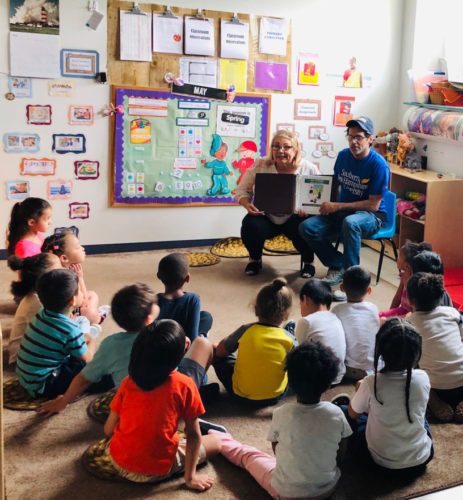Migrant Farmworker Children Struggle to Hold On
By Vashti Kelly, Health and Safety Program Manager, Association of Farmworker Opportunity Programs

Photo courtesy of AFOP.
Children from Latino migrant farmworker families are some of the most educationally marginalized students in the United States. They experience significant stressors and risks directly related to the circumstances surrounding the migrant farmworker lifestyle, which are linked to maladjustment as well as lower academic engagement and success.
Migration alters the composition of the family dynamic in many different ways. In each scenario, however, the children are negatively impacted by it- when they are left behind by parents; brought along by parents; or when they migrate alone, without parents or guardianship. Additional stressors include social exclusion, which is defined by Duffy as the “inability to participate in economic, social, and cultural life, and in some characteristics, alienation and distance from mainstream society.”[1] For migrant farmworker children, social exclusion often manifests itself as prejudice and discrimination in the academic setting.
As a former teacher in a predominantly agricultural community, I can attest to the lack of assimilation among Latino farmworker children. Being children, they are not always equipped with the tools to deal with their feelings, and so they manifest as disruptive behavior or failing grades. Although we as adults tend to compartmentalize our lives, it’s not so simple for children, in particular farmworker children, who are shouldering additional burdens. It is difficult to remain motivated and optimistic about your future when your constant is the impermanence of migrant life, leaving anxiety and stress as the constant reality. All of this takes a toll on a child’s ability to focus on their schoolwork.


